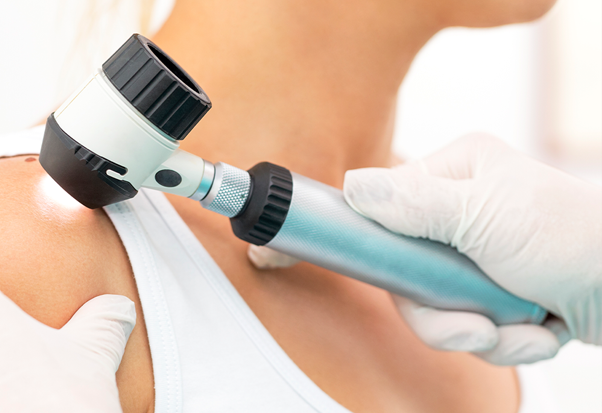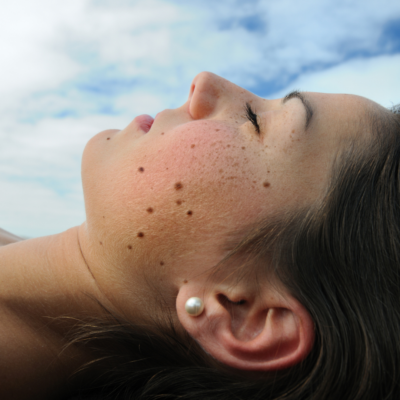
5 Things You Should Know About Skin Cancer Screenings
May is Skin Cancer Awareness Month. That means it’s time to schedule a skin cancer screening with one of our California Skin Institute board-certified dermatologists. Here are 5 things we would like you to know about skin cancer screenings:
1. A skin cancer screening is essential for high-risk individuals.
- Skin screenings are necessary for those at a higher risk of skin cancer, such as people with a family history of skin cancer, a personal history of skin cancer, or skin that burns easily.
- More than 3 million Americans are diagnosed with skin cancer in the United States every year.
- Skin cancer is the most common cancer in the United States.
- Skin cancer can be lethal – 2 Americans die every hour from skin cancer.
- When detected early, the 5-year survival rate for skin cancer is 99%.
2. Skin cancer screenings used to be recommended primarily for those with lots of moles or those who noticed a suspicious mole. Not anymore.
While the above are still valid reasons to seek a skin cancer screening, screenings are now recommended every three years for high-risk individuals aged 20 – 40 and every year for people over 40. Your board-certified dermatologist will assess how frequent your personal skin cancer screening should be. It is important to have your skin examined because you may not be able to see every area of your skin and sometimes something that looks ordinary may be cancerous. This could be:
- a small spot or mole that appears pale, smooth and waxy
- a red spot or mole that is firm
- rough and scaly patches on the skin
- a sore that does not heal or returns
- a spot that bleeds easily
- a spot that is growing in size
3. Expect to wear a gown during your screening.
Your skin cancer screening will be thorough, from the top of your scalp to the soles of your feet. At California Skin Institute, we strive to make you as comfortable as possible during any procedure, including skin cancer screening. However, a few brief moments of discomfort may be experienced. Skin cancer typically develops on skin areas most exposed to sunlight, but can also appear in other areas. Common sites for skin cancer are:
- Face
- Scalp
- Ears
- Nose
- Arms
- Legs
- Chest
- Back
4. No machinery is used during a skin cancer screening.
Unlike other preventive screenings such as bone density or a colonoscopy, a skin cancer screening involves no medical imaging tools.
No MRI or CT scan is needed. All that is required is the trained eye of your board-certified dermatologist and a magnifying glass. You can help by:
- Arriving with clean, bare skin; no make-up
- Removing all nail polish the night before
- Making sure your hair is clean and combed in a way that makes your scalp accessible
- Wearing little to no jewelry
5. You may get a same-day biopsy.
If we find something suspicious during your skin screening, we’ll biopsy it right away.
- A biopsy is the best way to ascertain if skin cancer is present. We’ll numb the area and remove a small amount of tissue for examination under a microscope. We’ll then bandage the biopsied area, and you’ll be good to go. The procedure takes only a few minutes.
- We’ll know the results of your biopsy in about a week. Most biopsies do not result in a cancer diagnosis. If a biopsy is positive, we can treat most skin cancers in the office. If skin cancer is determined, rest assured that we’ll start working with you right away to develop a treatment plan that is best for you.
What You Can Do to Help Prevent Skin Cancer
- Wear a broad-spectrum sunscreen with minimum SPF 30. Broad-spectrum protects against UVA and UVB rays. Make sure to apply liberally at least 15 minutes before sun exposure and reapply every 2 hours while outside. Reapplication should be more frequent if you are sweating or swimming. Your board-certified dermatologist can help you select a sunscreen you are sure to love.
- Wear sun protective clothing.
- Avoid tanning beds.
Call California Skin Institute today to schedule your skin cancer screening.



 / 291 Reviews
/ 291 Reviews